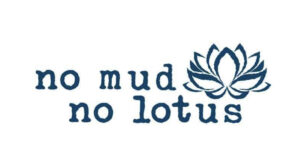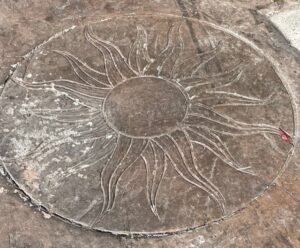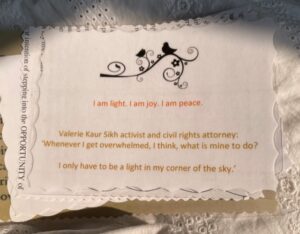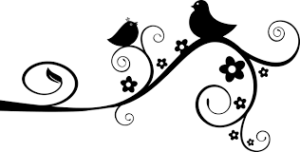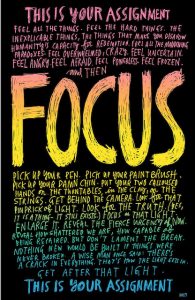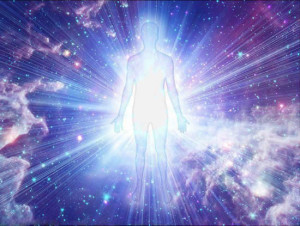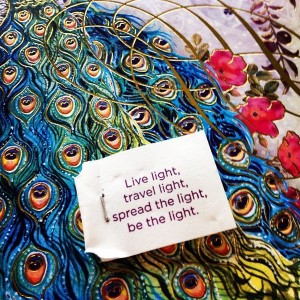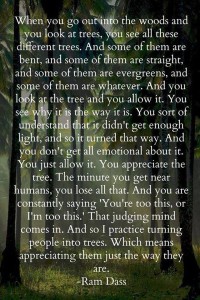Light
Cosmic Story
November 5, 2021Science of Mind
“I open my self to this time and place made holy by my contemplation. I open my heart, my mind and my very being to be present to that vast and amazing cosmic story which is still being told, a conclusion that is not yet known but continues to reveal itself in all of its creation.
I contemplate this Living Presence, and I view this vase arc of goodness, truth and beauty that my eyes behold. My very being is filled with the wonder and awe of Its glory.
I am aware of that life, of that mind which in the mind of Christ Consciousness, I am aware that that life is my life and my mind now, and from this place, I speak my word. The word that I speak is peace. The peace that heals, restores and reconciles my life to all life. The peace that diffuses any perception of illusion of separation from myself or anyone or anything. I allow myself to be grounded in the experience of the peace, this beauty, this goodness that avails itself to each of us now.
I am aware that we are all a center of divine consciousness in this act whole. I know that each of us is family to our home —our mother, the Earth.[Gaia] I know this Presence was there at the beginning of all things. It is the Presence that sustains all things. It is the Presence that makes all things new. It is the Christ consciousness that incarnates in all creation.
This presence, the Christ consciousness, calls forth in each of us that which is good and noble. It is this Presence that invites each of us to co-create a world that is just, equitable and sustainable of all life, a world that words for all creation.
And so even now, as light gives way to darkness, I know that once again light is born from darkness. And so I am filled with gratefulness for light that gives us warmth, that guides us and renews us. Naming it good, I call it forth by saying may it be so.”
Daniel P. Scheid
The cosmic common good provides a larger moral perspective, but it also exhorts us to “sink our roots deeper” into our native place and to work for the good of our place on Earth. The cosmic common good enjoins us to adopt and intensify the many Earth-oriented personal daily choices and movements for structural change with which we are already familiar, for example reducing consumption and energy use, eating less or no meat, minimizing our dependence on automobiles. . . .
Sinking our roots in our native place on this fertile Earth, but with the larger perspective of the cosmic common good, may we become like the righteous, “like a tree planted near streams of water, that yields its fruit in season,” whose “leaves never wither,” and that “whatever [we do] prospers” (Psalm 1:3–4). May the larger perspective of the cosmic common good inspire us to live and to work for the good of all members of this vast and wondrous cosmos:
for the poor, the vulnerable, and all those imperiled;
for the contexts in which creatures flourish, and for the greater wholes of
which they are a part;
for the order in creatures, by which they glorify the Creator;
for the good that creatures provide to other creatures;
for the good of the order of creatures, by which the cosmos is sustained;
for the emergent universe and the communion of subjects;
for the solidarity that binds us to all creatures;
for the promotion of justice for all creatures;
for the sacred that lies in the innermost being in all creatures;
for greater nonviolence and peace;
for the interdependence that shines like a jewel within all creatures;
for all of our relations above, below, and around us;
and for the land and this plot of Earth by which creatures come to discover
the cosmos at home.
Daniel P. Scheid, The Cosmic Common Good: Religious Grounds for Ecological Ethics(Oxford University Press: 2016), 181–182.
🔆
October 6, 2021[Image: #NFCB]
“Your assumptions are your windows on the world. Scrub them off every once in a while, or the light won’t come in.”
― Isaac Asimov
Stardust & Consciousness
July 25, 2021Fr Richard Rohr:
Living in a transitional age such as ours is scary: things are falling apart, the future is unknowable, so much doesn’t cohere or make sense. We can’t seem to put order to it. This is the postmodern panic. It lies beneath most of our cynicism, our anxiety, and our aggression.
Chaos often precedes great creativity, and faith precedes great leaps into new knowledge. The pattern of transformation begins in order, but it very quickly yields to disorder and—if we stay with it long enough in love—eventual reordering. Our uncertainty is the doorway into mystery, the doorway into surrender.
Center for Action and Contemplation teacher Barbara Holmes:
The crisis begins without warning, shatters our assumptions about the way the world works, and changes our story and the stories of our neighbors. The reality that was so familiar to us is gone suddenly, and we don’t know what is happening. . . .
If life, as we experience it, is a fragile crystal orb that holds our daily routines and dreams of order and stability, then sudden and catastrophic crises shatter this illusion of normalcy. . . . I am referring to oppression, violence, pandemics, abuses of power, or natural disasters and planetary disturbances. . . .
I consider crisis contemplation to be an aspect of disorder that prepares communities for a leap toward the future. This is a leap toward our beginnings. We are not just organisms functioning on a biological level; our sphere of being also includes stardust ☆ and consciousness. We all have a spark of divinity within, a flicker of Holy Fire that can be diminished, but never extinguished.
Knock Knock,
who’s there?
Mystery and Surrender.
Please, invite me in.
- Order
- Disorder
- Reorder
“Chaos often precedes great creativity.”
K
A
I
R
O
S
“People are attracted to that that makes them feel love.”
-Marriane Williamson, A Course in Miracles
Try. Intersect great ℒℴve love with great surrender.
Inhale.
jai
A meditation from Megan McKenna on the importance of translation. Scholar and author Neil Douglas-Klotz has worked for decades with the Aramaic language, which Jesus most likely spoke as a first-century Jewish man from Nazareth. Because translation is never an exact science, Dr. Douglas-Klotz offers several possible understandings of Jesus’ teaching “Blessed are they that mourn, for they shall be comforted.”
Blessed are those in emotional turmoil; they shall be united inside by love.
Healthy are those weak and overextended for their purpose; they shall feel their inner flow of strength return.
Healed are those who weep for their frustrated desire; they shall see the face of fulfillment in a new form.
Aligned with the One are the mourners; they shall be comforted.
Turned to the Source are those feeling deeply confused by life; they shall be returned from their wandering.
Dr. Douglas-Klotz continues:
Lawile can mean “mourners” (as translated from the Greek), but in Aramaic it also carries the sense of those who long deeply for something to occur, those troubled or in emotional turmoil, or those who are weak and in want from such longing. Netbayun can mean “comforted,” but also connotes being returned from wandering, united inside by love, feeling an inner continuity, or seeing the arrival of (literally, the face of) what one longs for.
Dr. Douglas-Klotz offers this embodied prayer practice to help readers sense the powerful message of this beatitude.
When in emotional turmoil—or unable to clearly feel any emotion—experiment in this fashion: breathe in while feeling the word lawile (lay-wee-ley) [longing]; breathe out while feeling the word netbayun (net-bah-yoon) [loving]. Embrace all of what you feel and allow all emotions to wash through as though you were standing under a gentle waterfall. Follow this flow back to its source and find there the spring from which all emotion arises. At this source, consider what emotion has meaning for the moment, what action or nonaction is important now.
Get after that light.
May 21, 2020@courtwrites
‘I believe in all that has never yet been spoken.’ -Rilke
Sophia.
October 17, 2018“Be ye diligent that ye may receive the mysteries of Light.”
-Pistis Sophia [Gnostic]
‘A word of counsel to people who are seeking to demonstrate about great big things: shut up about it. Don’t talk. The world does not believe, and they reflect their doubt. Keep your power within yourself. Insulate yourself, encompass yourself with it, protect yourself with it, surround yourself with it. That is putting on the armor of faith against the false thought of the human race. Get that big consciousness if you want to do something that takes a great deal of money to do it, takes a lot of understanding, takes a lot of people engaged in it…something that [is] an awful big thing. That is the point: Do something new.’
-Love & Law: The Unpublished Teachings (2001), pp. 114-115.
Spirit.
August 14, 2016‘Today I hold a communion with this invisible Presence that peoples the world with the manifestations of Its life, Its light, and Its love.’
-Science of Mind
Yes.
July 21, 2016Seth Godin
‘Singular isn’t about scale.
Tracy Chapman was outsold by the Doobie Brothers by 40:1. But the Doobie’s aren’t 40 times as singular an artist as she is.
Lou Reed was outsold by Van Morrison at least 40:1. But again, our image and memory of Lou compares to Van’s, it’s not a tiny fraction of his.
Singular is the one that we can tell apart, the one we remember, the one we will miss when it’s gone.
It’s entirely possible that creators with scale are also singular (like Van, or Miranda), but it’s not required. Many of the artists, leaders and teachers that have had an impact on you and on me have done so with very little popular acclaim.
It doesn’t pay to trade your singular-ness for scale.
Singular might lead to scale, but popular is not enough.’
Messy is the way.
June 25, 2016Thank you, Kerri Kelly.
‘I used to see a butterfly in my mind’s eye every time I heard the word transformation, but life has schooled me. Transformation isn’t a butterfly. It’s the thing before you get to be pretty bug flying away. It’s huddling in the dark cocoon and then pushing your way out. It’s the messy work of making sense of your fortunes and misfortunes, desires and doubts, hang-ups and sorrows, actions and accidents, mistakes and successes, so you can go on and become the person you must next become.’
